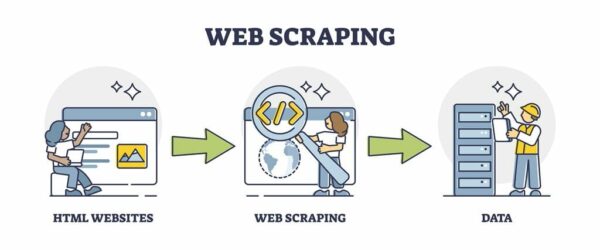Navigating the intricacies of a career in accounting requires a commitment to continuous learning and adaptation. In the contemporary professional landscape, where change is constant and demands are ever-evolving, online accounting courses have emerged as catalysts for career growth. This comprehensive exploration will delve into the multifaceted advantages of online accounting courses, offering insights into how these digital educational avenues can propel professionals towards a more prosperous and fulfilling career. Emphasising the broader impact beyond specific industry examples, this article aims to provide a detailed examination of the transformative power of online education in the field of accounting.
The Evolution of Professional Development:
Before delving into the advantages of online accounting courses, it’s crucial to understand the evolution of professional development in the accounting sector. Traditionally, acquiring advanced qualifications or enhancing one’s skills involved enrolling in physical institutions, often accompanied by substantial time and financial commitments. However, the digital revolution, coupled with the growing demand for flexible learning options, has paved the way for a paradigm shift in how professionals approach their education.
- Flexibility as a Cornerstone: The hallmark of online accounting courses lies in their flexibility. Professionals, juggling work commitments, familial responsibilities, and other aspects of their lives, can seamlessly integrate learning into their schedules. This flexibility not only eliminates geographical barriers but also allows individuals to maintain a work-life balance while investing in their professional development. This adaptability is especially crucial in an era where remote work and flexible schedules are becoming increasingly prevalent.
- Diverse Learning Environments: Online accounting courses offer a diverse array of learning environments, each tailored to cater to different preferences and learning styles. From interactive video lectures and live virtual classrooms to self-paced modules, professionals can choose the format that aligns with their individual needs. This diversity not only enhances the engagement factor but also accommodates the varied preferences of learners, contributing to a more enriching educational experience.
- Customisation and Specialisation Opportunities: One of the defining features of online accounting courses is the ability for individuals to customise their learning paths. Professionals can select courses that align with their career goals, whether it’s delving into forensic accounting, mastering advanced financial reporting, or specialising in management control systems. This customisation ensures that the knowledge acquired is not just comprehensive but also directly applicable to their specific areas of interest within the field.
- Networking on a Global Scale: Beyond the confines of traditional classrooms, online accounting courses create a global community of learners. Interacting with peers and instructors from diverse backgrounds provides a unique perspective on global accounting practices. The networking opportunities inherent in virtual classrooms extend beyond borders, enabling professionals to connect with experts and colleagues worldwide. This global network not only broadens one’s horizons but also establishes valuable connections that can span continents and industries.
- Technological Integration for Real-World Application: The integration of technology in online accounting courses is not merely a convenience; it’s a necessity in the rapidly evolving digital landscape of the accounting profession. Through these courses, professionals not only familiarise themselves with the latest accounting tools and software but also gain hands-on experience in their application. This real-world exposure ensures that the knowledge acquired is not theoretical but practical, aligning with the demands of the contemporary accounting workplace.
- Cost-Effective Learning Solutions: Pursuing traditional accounting qualifications often comes with a hefty price tag, including tuition fees, accommodation, and commuting costs. Online accounting courses, in contrast, provide a more cost-effective alternative. With reduced tuition fees and the elimination of additional expenses associated with on-site learning, professionals can pursue advanced education without straining their financial resources. This democratisation of education makes career advancement accessible to a broader demographic.
The Broader Impact of Online Accounting Courses:
As professionals engage with online accounting courses, the impact goes beyond individual skill enhancement. The collective influence of a workforce upskilled through digital education has far-reaching implications for the accounting profession as a whole. The ripple effect can be observed in various facets of the industry, contributing to its resilience and adaptability in the face of evolving challenges.
- Enhanced Competence in an Evolving Landscape: The accounting profession is not immune to the changes brought about by technological advancements and regulatory shifts. Online accounting courses equip professionals with the competence needed to navigate these changes effectively. Whether it’s understanding the implications of artificial intelligence on accounting processes or staying abreast of ever-changing tax laws, the continuous learning facilitated by online courses ensures that professionals remain at the forefront of their field.
- Contributing to Ethical Practices: Ethics are a cornerstone of the accounting profession. Online courses, often incorporating modules on ethical considerations and professional conduct, contribute to the cultivation of a more ethically aware workforce. This focus on ethics is essential in upholding the integrity of financial practices and fortifying the reputation of the accounting profession as a whole.
- Agile Responses to Industry Trends: The modular nature of many online accounting courses allows professionals to stay agile in response to emerging industry trends. Instead of waiting for periodic updates to their skill set, individuals can engage with specific modules or courses that address the latest trends in areas such as sustainability reporting, blockchain technology, or data analytics. This proactive approach ensures that the industry remains dynamic and responsive to contemporary challenges.
- Fostering a Culture of Lifelong Learning: Online accounting courses contribute to fostering a culture of lifelong learning within the profession. The accessibility of digital education encourages professionals to view learning as a continuous journey rather than a one-time event. This cultural shift towards lifelong learning not only benefits individuals but also creates a workforce that is inherently adaptive and open to embracing new ideas and methodologies.
In conclusion, the transformative power of online accounting courses goes beyond individual career growth; it influences the very fabric of the accounting profession. The flexibility, diverse learning environments, customisation opportunities, global networking, technological integration, and cost-effectiveness inherent in online education collectively contribute to a workforce that is not only skilled but also adaptable and resilient.
As the accounting landscape continues to evolve, professionals who embrace the opportunities presented by online education position themselves not just as beneficiaries but as contributors to the industry’s progression. The broader impact encompasses enhanced competence, ethical practices, agile responses to industry trends, and the fostering of a culture of lifelong learning. In a world where change is the only constant, online accounting courses emerge as not just educational tools but as integral components in shaping the future-ready accountant, equipped to navigate the complexities of a dynamic and ever-changing professional landscape.



